PART IV EROSION AND DEPOSITION: Sculpting Earth’s Surface
PARTIV
EROSION AND DEPOSITION: Sculpting Earth’s Surface
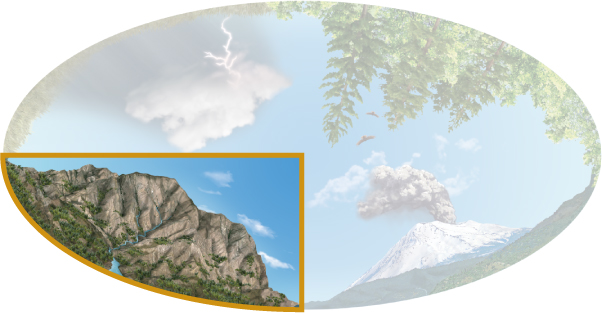
The Sun evaporates water that precipitates back down on the continents, and gravity sets that water in motion. Part IV explores the work of weathering, erosion, and sediment deposition in sculpting Earth’s surface. Through time, even the highest mountains are reduced to grains of sand by the action of streams, glaciers, wind, and coastal waves.
CHAPTER 15
Weathering and Mass Movement
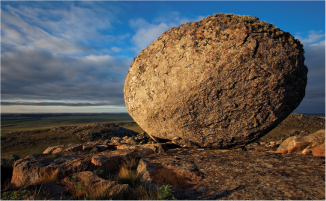
Weathering breaks apart and dissolves rock. Weathered rock material moves downslope by the force of gravity.
CHAPTER 16
FLOWING WATER: Fluvial Systems
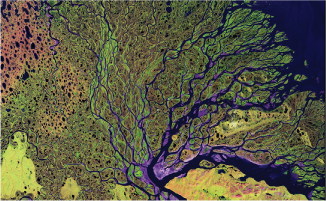
Flowing water transports weathered material downslope and deposits it. Most of Earth’s surface has been shaped by streams.
CHAPTER 17
THE WORK OF ICE: The Cryosphere and Glacial Landforms
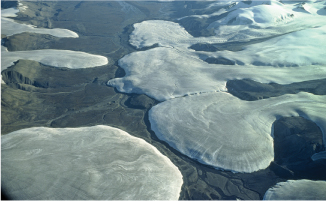
Glaciers flow downslope and gouge Earth’s surface, creating unique landforms.
CHAPTER 18
WATER, WIND, AND TIME: Desert Landforms
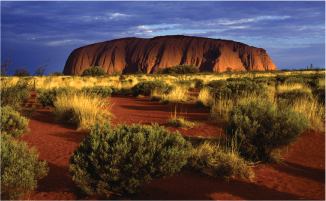
Desert environments are sculpted by flowing water and wind.
CHAPTER 19
THE WORK OF WAVES: Coastal Landforms
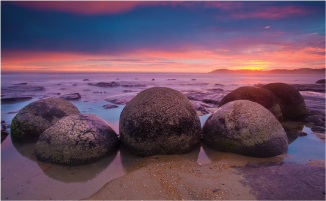
Beaches and rocky shorelines are shaped by coastal wave energy.
(Chapter 15: © Luis Argerich/National Geographic Society/Corbis; Chapter 16: EROS Center, U.S. Geological Survey; Chapter 17: © Dr. Juerg Alean/Science Source; Chapter 18: Per-